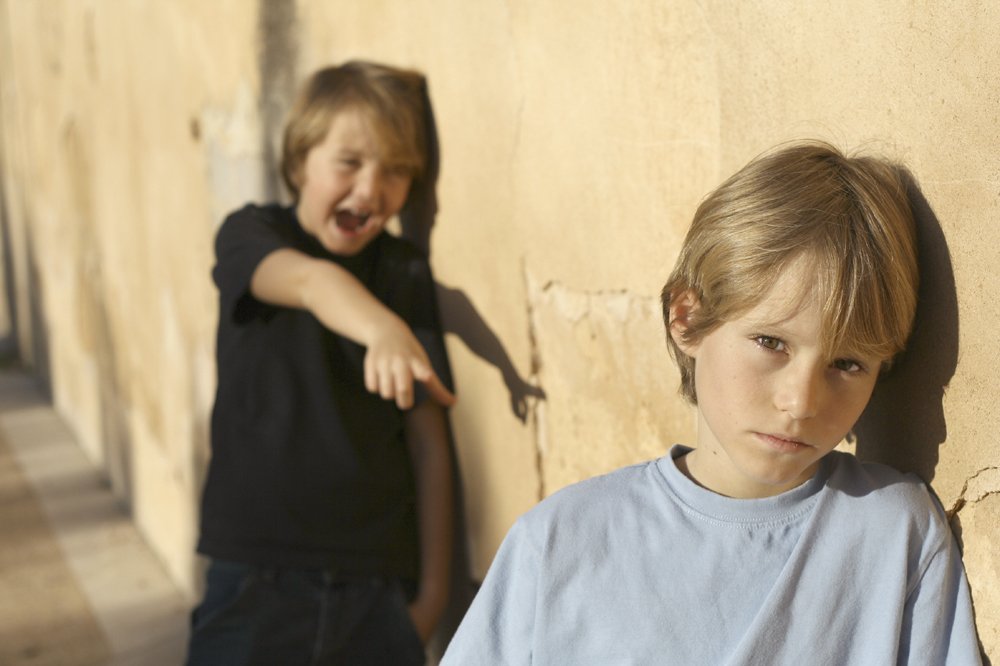Last Updated on January 14, 2013.
Chances are, if your child is being bullied, you don’t know anything about it. Only 15-30% of children who are bullied report the bullying to an adult. A large number of children are being physically, mentally, and/or emotionally tortured on a regular basis. In a disturbing majority of the cases, the adults in their lives (including teachers) have no idea. Bullies will not intimidate children with adults around.
Because the reality is so dramatic, we can no longer comfortably say to ourselves, “It’s not likely going to happen to my child.“
Of course, in the most dramatic, more publicized cases, we have bullied children causing severe harm to themselves, even going as far as suicide. Occasionally, we hear about those who snap and cause a shocking level of harm to others. It’s easy enough to dismiss these dramatic incidents, realizing, “This is not likely going to happen to my child.” Fair enough. It’s not likely.
However, the following statistics, are NOT dramatic, or extreme. They are normal. They are real. Because the reality is so dramatic, we can no longer comfortably say to ourselves, “It’s not likely going to happen to my child.”
One out of every six children is suffering in silence while being routinely demeaned… emotionally tortured. That’s normal. That’s horrible.
Clemson University conducted the largest study to date about bullying. Seventeen percent of kids reported being bullied 2-to-3 times a month, or more. Over one out of six children are being bullied regularly. Out of those children, 40% of girls and 45% of boys say they have been bullied for over a year. Taking comfort in the myth that this only applies to boys, doesn’t alter the reality that bullies are just as likely to be girls. Girls only happen to use different tactics.
One out of every six children is suffering in silence while being routinely demeaned… emotionally tortured. That’s normal. That’s horrible. It’s also uncomfortable for us, as parents, to consider that our child is one of the unfortunate 17%. So, what do we look for?
SIGNS THAT YOUR CHILD MIGHT BE THE VICTIM OF BULLYING
- Comes home with injuries he/she cannot explain
- Lost or damaged clothing or possessions
- Complains frequently of physical ailments, usually in order to stay home from school
- Signs of depression, anxiety and moodiness
- Increased need for solitude and a decrease in communication, avoidance
- Change of eating habits, either a loss or increase of appetite
- Appears afraid of going to school, or takes an unusual route to and from school
- Trouble sleeping / nightmares
- Declining grades in school
- Alienation from or lack of friends
These signs don’t necessarily mean that your child is the victim of bullying. Regardless, these signs will alert you to some type of problem. Finding out that bullying is the problem can be a challenge, as most kids will be too embarrassed to admit it for several reasons.
Bullies are systematic. They know what they are doing.
REASONS KIDS KEEP BULLYING TO THEMSELVES
- They think they should be able to take care of the situation themselves
- Kids don’t want to be stigmatized with being a tattler
- They may fear repercussions from the bully (bullies often threaten their victims with more severe bullying if they are told on)
- Kids don’t want to be perceived as someone who can be humiliated
- They may be worried about what actions a parent might take, that it might make the bullying worse
Bullies are systematic. They know what they are doing. They will not bully in front of adults. They will go through varying, “testing” phases before they resort to full-on, regular bullying of a child. Bullies will sort out who is weak. It can start with something as simple as a “seemingly accidental” physical bumping-into in the hallway. How would your child react? Would your child maintain a level of confidence, leading to the bully avoiding your child? Or would your child show a hint of intimidation and fear? This first fearful reaction leads bullies to escalate their tactics.
For us, as parents, it is important to dig deeper and determine whether or not our children are being bullied. Whether you are suspicious about this being the case, or discover that your child is being victimized, don’t allow this to affect them for the rest of their lives. Because, it really can affect them forever.
Children don’t have to fight bullies to stop bullying. They just need the confidence!
Tiger Schulmann’s instructors are regularly trained to help children overcome bullying. Many of the children in our programs started as victims, but have learned the self-confidence necessary to keep bullies from getting the initial fear response they so desperately desire.
Children don’t have to fight bullies to stop bullying. They just need the confidence that they can take care of themselves under challenging circumstances.

